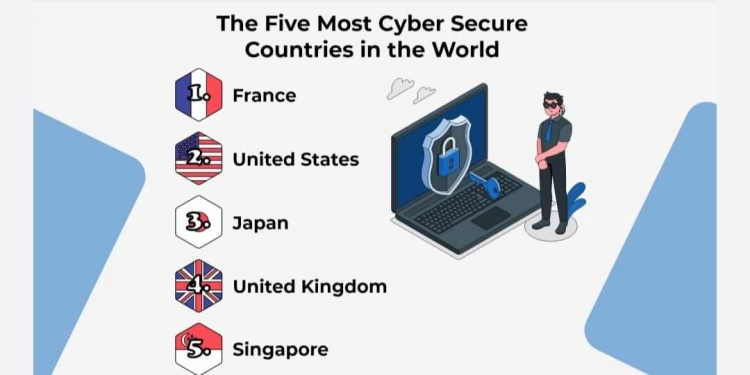Patient Data at Risk: Why Nigerian Healthcare Must Strengthen Cybersecurity
Introduction
Healthcare is rapidly going digital. Patient records, diagnostic devices, insurance systems, and even telemedicine platforms are now connected to the internet. This shift brings efficiency, convenience, and better patient outcomes. But it also exposes hospitals and clinics to cyber threats.
Globally, healthcare has become one of the top targets for cybercriminals. In the United States, ransomware has forced hospitals to cancel surgeries. In the UK, the NHS was hit by the WannaCry attack in 2017, which disrupted services across the country. And in 2021, Ireland’s health service was paralysed for weeks by a similar attack.
Nigeria is not immune. As hospitals begin to digitise, they face the same risks — but with weaker defences. Unlike advanced economies, Nigeria lacks sector-specific laws, well-funded security programs, and trained cybersecurity staff in healthcare institutions. The result: patient data is at risk, and in extreme cases, lives could be endangered.
The Digital Shift in Healthcare
Healthcare systems worldwide are undergoing digital transformation.
In advanced economies, most hospitals have fully digitised patient records, imaging systems, and pharmacy databases. The US has electronic health records (EHR) adoption rates of over 85% among hospitals. The UK’s NHS stores millions of patient records electronically and runs national health data exchange platforms.
In Nigeria, digitisation is uneven. Major private hospitals in Lagos and Abuja use electronic medical record (EMR) systems, but many public hospitals still rely heavily on paper files. Some hospitals have hybrid systems where digital and manual records coexist, creating inconsistent protection.
The push for digital healthcare in Nigeria is driven by rising demand for efficiency, pressure to modernise, and growing telemedicine platforms. But without matching cybersecurity investment, this shift opens dangerous vulnerabilities.
The Healthcare Cyber Threat Landscape
Healthcare is a lucrative target for cybercriminals because of the value of patient data. Unlike credit card numbers, which can be cancelled, medical records contain permanent details — names, addresses, medical history, insurance information, and in some cases, biometric data. These records sell for up to 10–20 times more than credit card data on the dark web.
Major cyber threats in healthcare include:
Ransomware attacks: Hackers encrypt hospital systems and demand payment before releasing data. In 2020, a ransomware attack on a German hospital forced doctors to redirect a patient to another facility, where she died due to delays.
Data breaches: Patient records stolen for identity fraud, insurance scams, or illegal research.
Insider threats: Employees mishandling or selling data for personal gain.
Denial-of-service attacks: Systems are overloaded, making them unavailable during emergencies.
IoT vulnerabilities: Internet-connected medical devices, like ventilators and monitoring systems, can be hacked.
In advanced economies, these threats are monitored, reported, and analysed by dedicated agencies. In Nigeria, many incidents go unreported, making it difficult to grasp the full scale of the threat.
Regulatory Frameworks: Nigeria vs. Advanced Economies
Nigeria
The Nigeria Data Protection Regulation (NDPR) provides general guidance on handling personal data.
The National Health Insurance Scheme (NHIS) has some IT policies, but none specifically on cybersecurity.
No healthcare-specific cybersecurity law exists.
Breach reporting is rare, and enforcement of NDPR has been inconsistent.
Advanced Economies
United States: The Health Insurance Portability and Accountability Act (HIPAA) sets strict standards for protecting patient data. Hospitals must encrypt data, control access, and report breaches. Violations can attract fines of millions of dollars.
United Kingdom: Under UK GDPR and NHS Digital rules, patient data is strictly regulated. Hospitals must report breaches within 72 hours. NHS Digital also funds centralised cybersecurity programs.
European Union: The General Data Protection Regulation (GDPR) enforces strong protections across all sectors, with heavy penalties for non-compliance. Healthcare institutions face some of the strictest scrutiny.
Canada: The Personal Health Information Act (PHIA) governs healthcare data, with mandatory breach notification.
The comparison is stark: while developed nations have detailed, sector-specific rules, Nigeria relies on general laws that lack enforcement.
The Challenges Nigeria Faces
Nigeria’s healthcare sector struggles with multiple barriers that make cybersecurity particularly weak:
Budget constraints: Public hospitals operate under tight budgets, with most funds allocated to clinical services and infrastructure. Cybersecurity spending is almost non-existent.
Low awareness: Many healthcare workers are unfamiliar with phishing, password security, and safe data handling practices.
Poor infrastructure: Outdated computers, pirated software, and weak networks make systems easy targets.
Lack of skilled staff: Few hospitals employ IT staff with cybersecurity expertise. Security tasks are often handled by general IT support teams.
Weak enforcement: Regulators rarely audit healthcare cybersecurity, and breaches often go unpunished.
Cultural barriers: Patients and staff may prioritise convenience over security, resisting measures like password changes or two-factor authentication.
These challenges create an environment where even simple cyberattacks can succeed.
Case Studies: Cyber Incidents in Healthcare
Global: In 2017, the WannaCry ransomware attack disrupted the UK’s NHS, forcing hospitals to cancel 19,000 appointments. In the US, ransomware attacks on hospitals doubled between 2019 and 2021, with damages running into billions of dollars.
Nigeria: While many cases remain undocumented, reports have surfaced of hospitals losing patient records due to malware or insider leaks. Some private hospitals have faced insurance fraud after data breaches, though these rarely make national headlines.
The lack of transparency in Nigeria’s healthcare sector means that many cyber incidents remain hidden, denying the industry the chance to learn and adapt.
Why Healthcare Needs Special Protection
Cybersecurity in healthcare is not just about protecting data; it is about protecting lives. When hospital systems are down:
Surgeries may be delayed.
Test results may be unavailable.
Doctors may be unable to access patient histories.
Emergency services may be paralysed.
In advanced economies, ransomware has already caused treatment delays and even contributed to patient deaths. Nigeria’s weaker infrastructure means the potential consequences could be far worse.
What Nigeria Can Learn from Advanced Economies
To strengthen its healthcare cybersecurity, Nigeria should borrow lessons from more advanced systems:
Create healthcare-specific regulations: A dedicated law should mandate minimum cybersecurity standards for hospitals.
Mandatory incident reporting: Hospitals should be required to report breaches within a fixed timeframe, just as GDPR mandates.
Centralised support: A national healthcare cybersecurity agency could provide resources, training, and rapid response to hospitals.
Cyber hygiene training: Staff should be trained to recognise phishing emails, handle data securely, and respond to incidents.
Investment in backups: Hospitals must maintain offline backups to continue operating during ransomware attacks.
Secure medical devices: IoT medical equipment should be regularly patched and protected from unauthorised access.
Public-private partnerships: Government and private companies can jointly fund cybersecurity solutions, especially for public hospitals.
Building a Nigerian Healthcare Cybersecurity Roadmap
For real progress, Nigeria needs a phased approach:
Short term (1–2 years): Launch awareness campaigns, train staff, enforce basic access controls and regular data backups.
Medium term (3–5 years): Introduce healthcare-specific regulations, mandate breach reporting, and build a national cyber incident response team for healthcare.
Long term (5+ years): Invest in advanced security infrastructure such as AI-driven threat detection and integrate cybersecurity into every stage of hospital operations and patient care.
Conclusion
Cybersecurity in healthcare is no longer optional. Globally, hospitals are being targeted, data is being stolen, and patients are at risk. Advanced economies have recognised this, building laws and systems to protect their citizens.
Nigeria must act now. The country cannot afford to wait until a major hospital system is shut down by ransomware or until sensitive patient records flood the dark web. Protecting healthcare is about safeguarding both data and lives.
A secure healthcare sector will not only protect patients but also build trust, attract investment, and support Nigeria’s digital health ambitions. The roadmap is clear — what is needed now is the will to act.
Reference
NDPR (Nigeria Data Protection Regulation) – NITDA, 2019.
https://nitda.gov.ng
National Health Insurance Authority (NHIA, Nigeria) – ICT & e-health policies.
https://www.nhia.gov.ng
HIPAA (Health Insurance Portability and Accountability Act, US) – Official US HHS resources.
https://www.hhs.gov/hipaa
NHS Digital (UK) – Data Security and Protection Toolkit.
https://digital.nhs.uk
European Union – GDPR Official Text (2018).
World Health Organization (WHO) – Global Strategy on Digital Health 2020–2025.
https://www.who.int
Ponemon Institute – Cost of a Data Breach Report 2023 (IBM-sponsored, detailed healthcare breach costs).
Interpol – African Cyberthreat Assessment 2021 (covers attacks on healthcare across Africa).
Nigeria Health Watch – Articles on digital health adoption in Nigeria.
https://nigeriahealthwatch.com
Case Studies:
WannaCry Attack on NHS (2017) – BBC & NHS reports.
Irish Health Service Executive Ransomware Attack (2021) – Irish Times, HSE Report.












